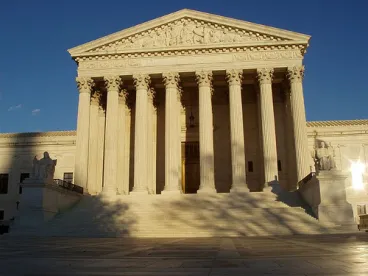The U.S. Supreme Court heard oral argument on Monday, April 25, in a case that raises questions of whether the Broadest Reasonable Interpretation (BRI) standard should continue to be used in AIA trials, as well as whether institution decisions in AIA trials should be subject to appellate review. During the oral argument, many of the justices questioned why the standard for claim construction in AIA trials is different than the standard used by the district courts, and the repercussions of this for a litigant trying to assert or defend a patent. The justices also questioned whether AIA trials are more closely associated with a district court proceeding or a USPTO examination proceeding, whether the BRI standard is in line with Congressional intent to eliminate patents that should never have issued, and why Congress chose not to specify a claim construction standard given the USPTO’s longstanding use of BRI. The justices also questioned whether it makes sense in view of prior decisions to completely forbid judicial review of institution decisions, or whether at least some review should be available after a final written decision. During the arguments, the attorney arguing for the PTO acknowledged that mandamus should at least be available in extraordinary circumstances, but that otherwise all institution decisions should be non-reviewable. It is unclear how the Court will ultimately decide the case, but a decision is expected by the end of June.
A copy of the transcript is available here.
Board Permits Patent Owner to Cross-Examine Petitioner’s Witness from Prior Litigation
In a recent covered business method review, the Board permitted the Patent Owner to cross-examine the Petitioner’s witness from a prior litigation, and required the Petitioner to make the witness available for the cross-examination. The Board noted that this requirement fell under routine discovery (as opposed to additional discovery, which would have required a motion showing good cause), since the Petitioner was relying heavily on the witness’ testimony.
A link to the Board’s decision is provided here.
District of Colorado Allows Defendant to Use Proceedings Before the PTAB as Objective Evidence of Non-Willfulness
In a recent case in Colorado, the District of Colorado found that a defendant did not act willfully in infringing a patent owner’s patents. The Court noted that its finding was supported by proceedings brought with respect to certain patents before the PTAB, which resulted in a finding of invalidity of one of the patents, and a hearing on the possible invalidity of another.
A link to the PTAB’s decision is provided here.






 />i
/>i

